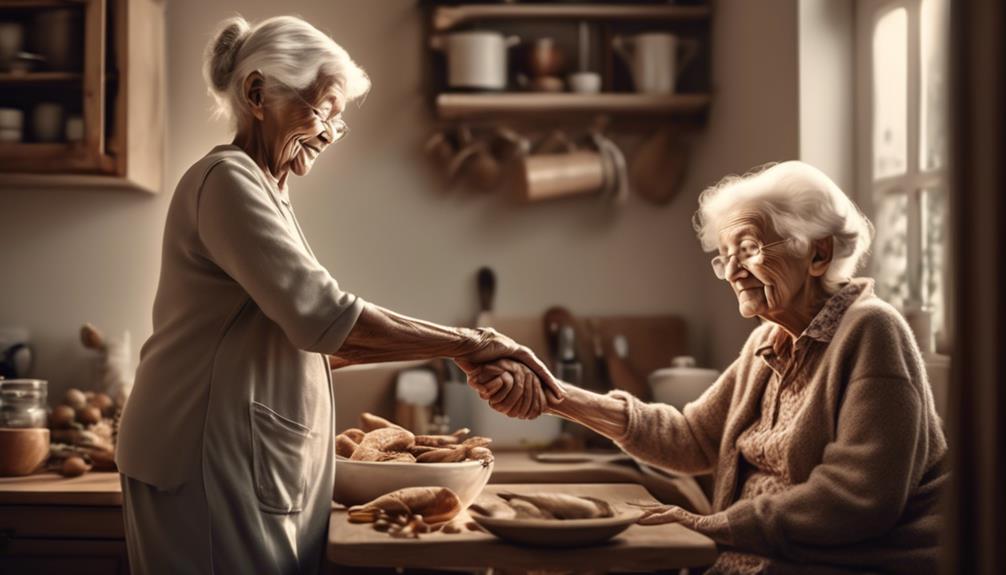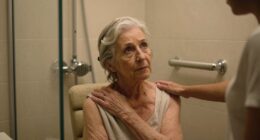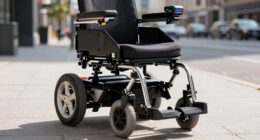In today’s fast-paced healthcare setting, there is an increasing demand for family caregivers to handle complex medication schedules. As more seniors rely on their family members for help, it is essential to offer comprehensive training to these caregivers on the correct management of medications.
As we explore the challenges faced by these caregivers and the potential consequences of inadequate training, it becomes clear that addressing this critical need is paramount for ensuring the well-being of our aging population.
Join us as we unravel the strategies and resources available to empower family caregivers in this vital aspect of caregiving.
Key Takeaways
- Tailored training vital for effective medication management.
- Family caregivers face burnout balancing care and personal needs.
- Inadequate training leads to adverse reactions and risks.
- Empower caregivers with tailored resources for older adults' well-being.
Importance of Medication Training for Caregivers
Engaging in medication training is crucial for family caregivers who play a pivotal role in managing complex medication regimens for older adults, including injections. Informal caregivers handle an average of 5 or more medications, involving monitoring, clinical judgments, and adherence support.
However, many caregivers lack formal training in medication management, leading to challenges like ambiguity and unfamiliarity in their roles. To address these issues, tailored training programs are essential. Caregivers often personalize tools and strategies for effective medication management, highlighting the need for structured medication education and support programs.
Recommendations stress the importance of enhancing caregivers' capabilities through education and tailored support. By providing caregivers with the necessary training, they can better navigate the complexities of medication management, ensuring the well-being of the older adults under their care.
Investing in medication training for caregivers isn't just beneficial but imperative for improving the quality of care provided.
Challenges Faced by Family Caregivers

Amidst the responsibilities they shoulder in managing complex medication regimens, family caregivers face an array of challenges due to the lack of formal training in medication management. These challenges include:
- Medication Management: Family caregivers often lack the necessary knowledge and skills to effectively administer medications, leading to potential errors or missed doses.
- Care needs: Balancing caregiving duties with their own needs can lead to caregiver burnout and stress, impacting the quality of care provided.
- Training Needs: The absence of formal education leaves caregivers feeling ill-equipped to handle the intricacies of complex medical regimens, highlighting the critical need for support and training.
Family caregivers, as informal caregivers, play a vital role in providing essential support to their loved ones. Recognizing and addressing these challenges through comprehensive training and assistance is crucial for ensuring the well-being of both caregivers and care recipients.
Impact of Inadequate Medication Training
The impact of inadequate medication training on family caregivers is evident in the alarming statistics of adverse medication responses among seniors, highlighting the urgent need for enhanced educational support in medication management. Family caregivers, often responsible for medication administration for older adults, face challenges due to the complexities of medication management. Inadequate training can lead to adverse reactions, patient non-compliance, and increased risks for seniors. Over 35,000 seniors experience hip fractures annually due to adverse medication responses, emphasizing the critical importance of proper medication assistance. Additionally, 28% of emergency hospital admissions result from adverse reactions or patient non-compliance with medications, showcasing the real-world consequences of insufficient medication training. Seniors, who represent 14% of the population, account for a significant portion of prescribed medications and over-the-counter purchases, underscoring the need for comprehensive education in medication administration to ensure their well-being.
| Elderly | Medication Management | Adverse Reactions |
|---|---|---|
| Family Caregivers | Patient Non-compliance | Seniors |
| Medication Risks | Medication Assistance | Medication Administration |
Strategies for Improving Medication Training

Understanding the challenges faced by family caregivers due to inadequate medication training underscores the critical necessity for implementing effective strategies to improve medication education and support programs. Family caregivers play a crucial role in managing complex medication regimens for older adults, often juggling multiple medications, including injections, for their care recipients.
To address the training needs of caregivers and enhance medication management for older adults, the following strategies can be implemented:
- Development of tailored education programs focusing on medication management techniques specific to the needs of care recipients.
- Providing hands-on training sessions to caregivers to improve their skills in administering medications and handling potential side effects.
- Offering ongoing support and resources to caregivers, such as access to informational materials and helplines, to address any uncertainties or challenges they may encounter in medication management.
Resources for Empowering Caregivers
Comprehensive training resources are essential for empowering caregivers to effectively manage medication regimens for older adults. Caregivers often independently acquire knowledge about medications, making tailored training programs crucial for their success.
Unlike novice student nurses who follow a 'see one, do one, teach one' methodology, caregivers require specific resources to enhance their skills in safe medication administration. Educational resources such as guides and workshops play a pivotal role in equipping caregivers with the necessary knowledge for medication management.
Providing tools and support can further aid caregivers in navigating complex regimens efficiently. By offering comprehensive training that focuses on knowledge acquisition and practical application, caregivers can feel more confident and competent in their roles.
Empowering caregivers with the right resources is fundamental in ensuring the well-being and safety of older adults under their care.
Frequently Asked Questions
Why Is It Important to Ensure That Caregivers Administer Medication Properly?
Ensuring caregivers administer medication properly is crucial for maintaining the health and well-being of the recipients. Proper medication administration prevents adverse reactions, reduces emergency hospital admissions, and improves overall health outcomes.
What Are the Interventions to Support Family Caregivers?
Interventions to support family caregivers include tailored training programs, access to specialized resources, and ongoing guidance from healthcare professionals. These interventions aim to enhance caregiver skills, boost confidence in handling medical tasks, and provide emotional support throughout the caregiving journey.
What Is the Most Difficult Thing in a Caregiver Job?
Handling the emotional toll of caregiving can be the most difficult aspect of our job. Balancing the needs of our loved ones with our own well-being requires constant attention and self-care.
It's essential to find ways to manage stress, seek support from others, and prioritize our own physical and mental health. By taking care of ourselves, we can better care for those who depend on us.
What Are Some Coping Skills That Caregivers Can Utilize to Manage the Demands of Caregiving?
We find that creating a daily schedule helps prioritize tasks efficiently. It allows us to manage caregiving demands effectively.
By implementing self-care routines like exercise and seeking social support, we can prevent burnout.
Setting boundaries and delegating tasks when possible also aids in maintaining well-being.
Developing problem-solving skills and seeking counseling when needed further enhances our ability to cope with challenges.
Conclusion
In conclusion, addressing the critical need for medication training among family caregivers is essential for improving health outcomes for older adults.
By providing tailored programs and resources, caregivers can confidently and safely administer medications, ensuring the well-being of their loved ones.
Through proactive strategies and empowering resources, we can create a supportive environment where caregivers are equipped with the necessary skills to effectively assist older adults during Medicare home health episodes.








